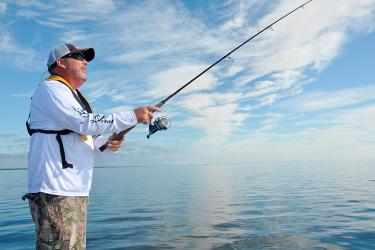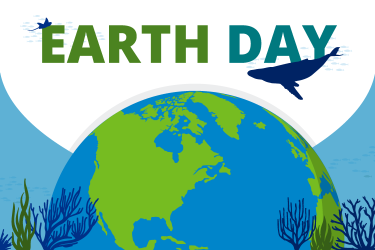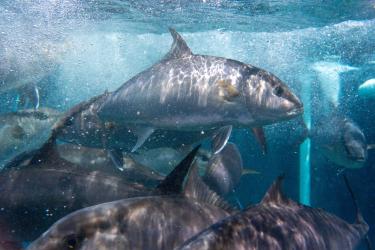Heather Coleman is the Deep Sea Coral Research and Technology Coordinator. She has worked for NOAA's Office of Habitat Conservation in Silver Spring, Maryland for four years.
Describe a project related to habitat that you’re currently working on or that you enjoyed.
While most of my job is located securely at a desk, my most enjoyable moments are savored at sea. I’ve been fortunate to join our deep-sea coral researchers on two expeditions—one off the west coast of Florida and one in Washington state waters. This kind of experience is critical to my understanding of the research our program supports. It also reminds me of why I was drawn to marine science. The deep sea holds so many secrets and I thoroughly enjoy being a part of their discovery.
Research expeditions are always filled with challenges, however. For example, in Florida, our remotely operated vehicle had mechanical problems and new parts had to be shipped overnight from Scotland to Florida. Then they had to be hand delivered by speed boat to our ship in the middle of the Gulf of Mexico! Despite the challenges of science at sea, we always work as a team. We continue to learn a little more each day about a valuable, vulnerable, and understudied habitat.
What habitat work has been especially successful or inspiring to you?
How could I not pick deep-sea coral research? The challenges of deep-sea research are not to be ignored! There is no natural light, the pressure is crushing, it’s far from land, and the ocean is a corrosive and hostile place for technology. Yet we continue to innovate and work together to better understand the deep sea. Many people are not aware that coldwater corals exist, so any discovery we can share with the public is a big deal. The information collected through our research helps inform ocean management decisions, and every day I am proud to be a part of that important process.
Describe a time when you were surprised by fish and/or habitat.
I spent a year coordinating kelp forest restoration in Los Angeles. (A project that actually became a precursor to abalone restoration work supported by the NOAA Fisheries Office of Habitat Conservation!) After many months of hard work, I was diving at one of our restoration sites off the coast of Malibu, and I turned to see a black sea bass nibbling my fin tip! These fish are huge—like swimming refrigerators—and are rare to see along the coast of Southern California. I still don't know why this fish was in such an unusual place, or why it thought my fin might be tasty. I like to think it was showing some appreciation for our efforts.
What person has expanded your understanding or connection to habitat?
Tom Hourigan, Chief Scientist for NOAA’s Deep Sea Coral Research and Technology Program, has quite literally taught me everything I know about deep-sea corals and sponges! I owe him a great debt of gratitude and will always be thankful for his shared knowledge, guidance, and mentoring.



